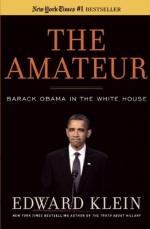The restaurant into which for the first time Ashton had penetrated, and in which he felt ill at ease, was to Ford, he observed, a matter of course. Evidently for Ford it held no terrors. He criticised the service, patronized the head waiters, and grumbled at the food; and when, on leaving the restaurant, an Englishman and his wife stopped at their table to greet him, he accepted their welcome to London without embarrassment.
Ashton, rolling his cigar between his lips, observed the incident with increasing bewilderment.
“You’ve got some swell friends,” he growled. “I’ll bet you never met them at Healey’s!”
“I meet all kinds of people in my business,” said Ford. “I once sold that man some mining stock, and the joke of it was,” he added, smiling knowingly, “it turned out to be good.”
Ashton decided that the psychological moment had arrived.
“What is your business?” he asked.
“I’m a company promoter,” said Ford easily. “I thought I told you.”
“I did not tell you that I was a company promoter, too, did I?” demanded Ashton.
“No,” answered Ford, with apparent surprise. “Are you? That’s funny.”
Ashton watched for the next move, but the subject seemed in no way to interest Ford. Instead of following it up he began afresh.
“Have you any money lying idle?” he asked abruptly. “About a thousand pounds.”
Ashton recognized that the mysterious stranger was about to disclose both himself and whatever object he had in seeking him out. He cast a quick glance about him.
“I can always find money,” he said guardedly. “What’s the proposition?”
With pretended nervousness Ford leaned forward and began the story he had rehearsed. It was a new version of an old swindle and to every self-respecting confidence man was well known as the “sick engineer” game. The plot is very simple. The sick engineer is supposed to be a mining engineer who, as an expert, has examined a gold mine and reported against it. For his services the company paid him partly in stock. He falls ill and is at the point of death. While he has been ill much gold has been found in the mine he examined, and the stock which he considers worthless is now valuable. Of this, owing to his illness, he is ignorant. One confidence man acts the part of the sick engineer, and the other that of a broker who knows the engineer possesses the stock but has no money with which to purchase it from him. For




